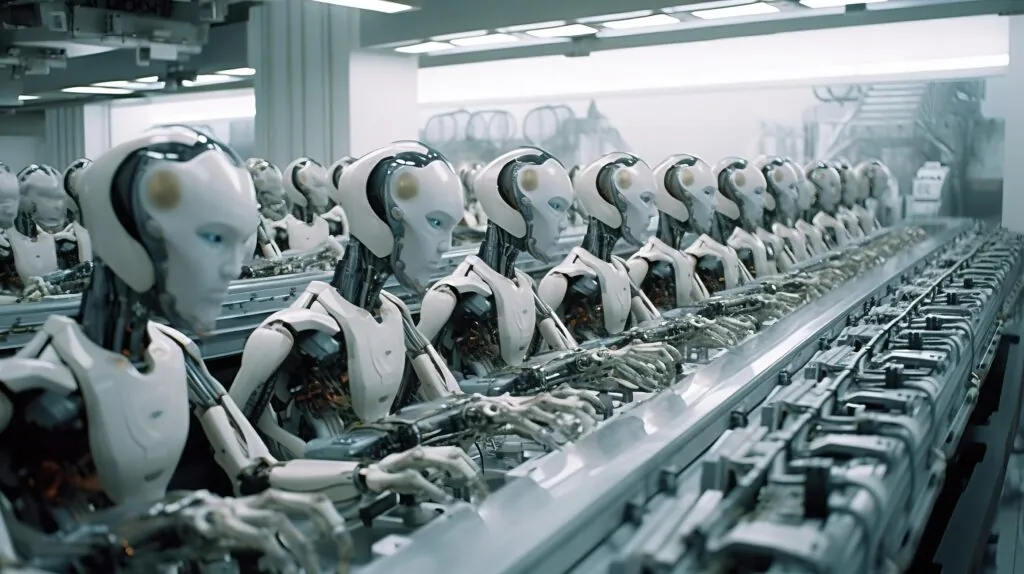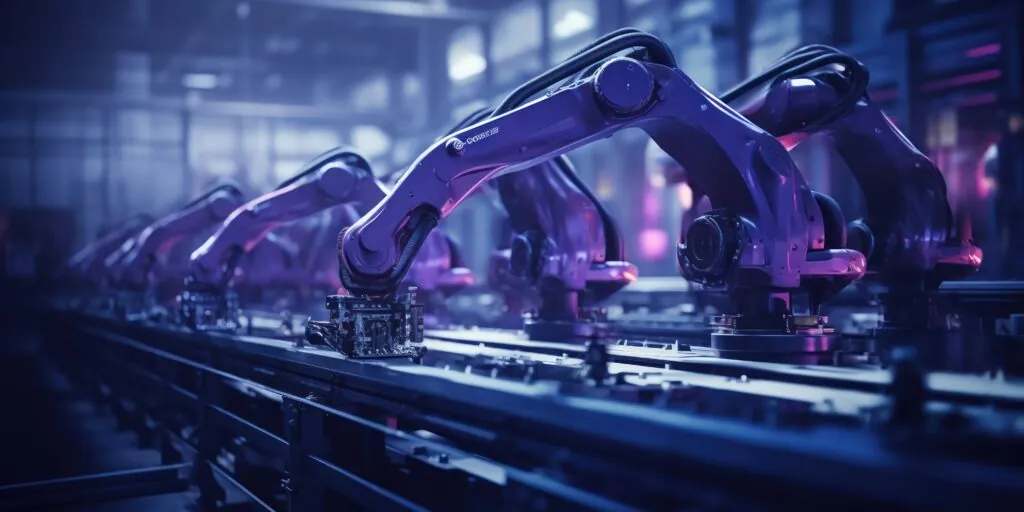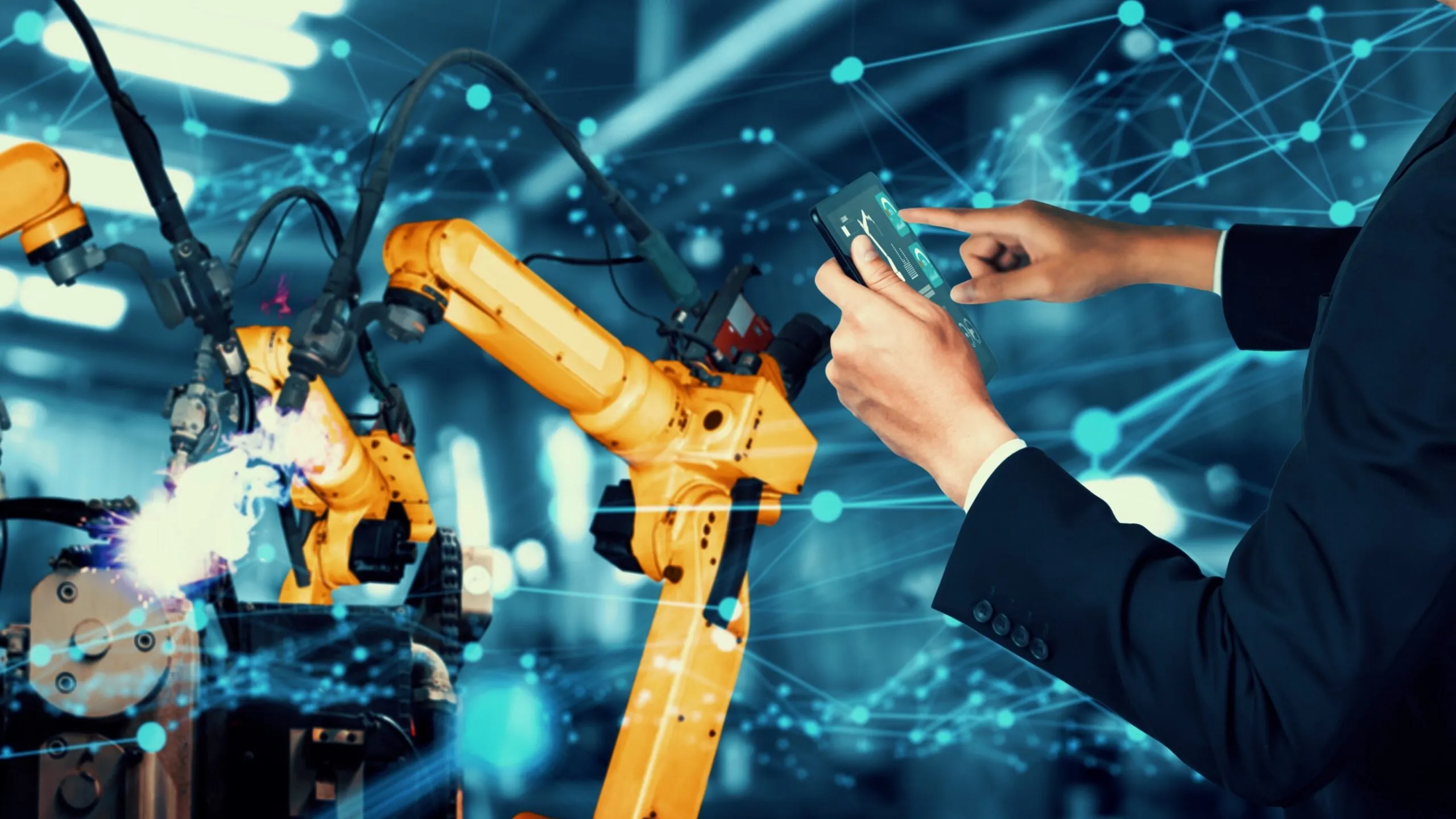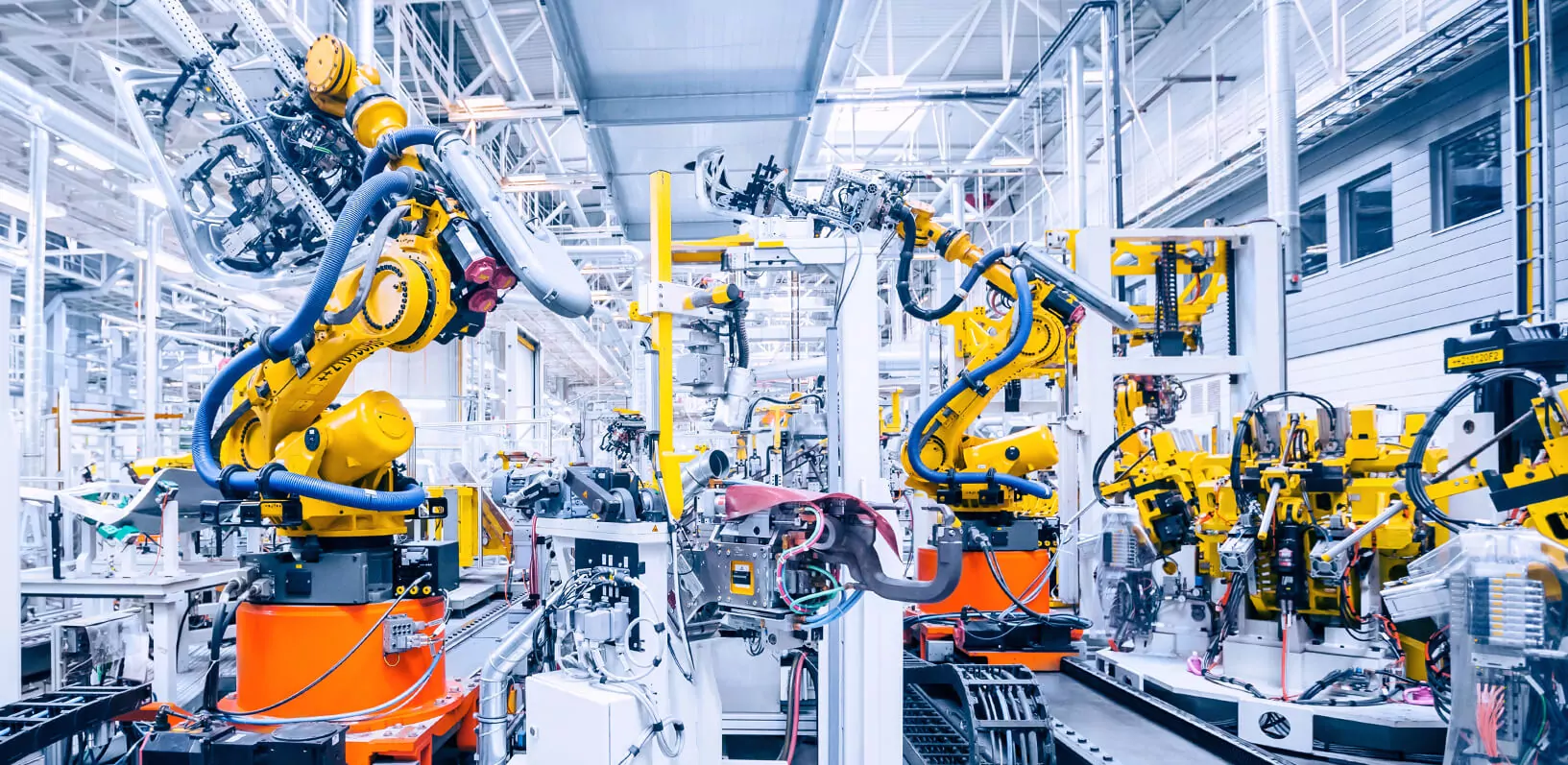According to EY and Microsoft’s study, 81% of manufacturing leaders agree that AI has become more critical for their business over the past few years. Still, just 10% say they have a detailed plan with initiatives and defined responsibilities. Manufacturing companies are heading towards a critical phase of identifying suitable AI use cases to invest in. According to Gartner’s research, the key obstacles are high costs, difficulty calculating accurate ROI, and security reasons.
Neurosys has been a dedicated partner for manufacturing companies for the past five years, pioneering AI innovations. As manufacturing engineers’ R&D and development partner, we specialize in addressing the most pressing challenges in production lines and refining manufacturing processes. Our experience and known capabilities have created an extensive list of critical use cases that manufacturing leaders should prioritize in their programs.
Quality Control & Machinery Inspection – Use Cases
Quality Control (QC) in manufacturing has been dramatically transformed by integrating Artificial Intelligence (AI), enhancing the efficiency and accuracy of inspection processes. Here are some use cases and examples illustrating how AI is applied in quality control:
Use Cases of AI in Quality Control
Visual Inspection and Defect Detection: In automotive manufacturing, AI-powered visual inspection systems scan car bodies for dents, scratches, or paint inconsistencies. High-resolution cameras paired with AI algorithms detect defects more consistently than the human eye.
Electronics Manufacturing: In electronics, especially in PCB (Printed Circuit Board) manufacturing, AI algorithms inspect boards for soldering defects, misplaced components, and other quality issues crucial for the functionality of electronic devices.
Textile and Apparel Inspection: AI-powered systems inspect textiles for flaws in the fabric, color inconsistencies, and pattern irregularities, ensuring high-quality production in the fashion industry.
Quality Control through AI – A Real-Life Example
For a client in the pharmaceutical industry, we have created an AI system to check bacteria and samples in the production process. These processes in specific industries involve batch control, e.g., food, pharmaceuticals, or cosmetics. However, information about the development of bacteria in a batch is available at a late production stage. The entire process also wastes time apart from the damaged batch.
We have prepared over 18,000 samples of microorganisms for our client, thanks to which the trained AI quickly identifies the appearance of bacteria in a given batch. Such identification enables an even faster response, thus accelerating the production of a qualified product and, consequently, the efficiency of the production line.
Read more about this case study.
Implementing AI in quality control enhances accuracy and significantly speeds up the inspection process, leading to cost savings and improved product reliability. It’s integral to shifting towards more innovative, automated manufacturing processes.

Smart Factory Integration – Examples
Smart factory integration, powered by Artificial Intelligence (AI), represents a significant shift in the manufacturing landscape, moving towards more connected, efficient, and intelligent production environments. This approach is central to the concept of Industry 4.0. Here are some critical use cases and examples of smart factory integration:
Use Cases of AI in Smart Factory Integration
Real-Time Monitoring and Control: Smart factories use IoT (Internet of Things) sensors and AI to monitor production processes continuously. This data is used to adjust operations in real-time for optimal efficiency and to predict maintenance needs.
Automated Material Handling: Automated guided vehicles (AGVs) and robots are used for material handling. They move products through different stages of the manufacturing process without manual intervention, improving speed and reducing errors.
Energy Management: Smart factories use AI to optimize energy consumption, reducing costs and environmental impact. AI systems can dynamically adjust energy use based on production schedules and external factors like weather.
Smart Factory Integration – Real-World Use Case
One of the problems of adapting the production hall to Smart Factory Integration is older generation machines. Despite implementing digital transformation in the organization, production machines cannot adapt to these changes. And this is where we found the solution.
For our client, we proposed using cameras as sensors. Instead of replacing all the expensive equipment on the production lines, we proposed installing micro cameras in critical places. The cameras provide the necessary data, which is then analyzed by AI and precisely estimates the machine’s failure rate.
This solution optimizes the costs of implementing Smart Factory Integration and ensures production continuity and faster response to failure.
Adopting smart factory integration is not just about technology; it represents a fundamental shift in manufacturing operations, emphasizing agility, efficiency, and data-driven decision-making. As AI and IoT technologies continue to evolve, the potential for further innovation and optimization in manufacturing is enormous.

Robotic Process Automation – AI Use Cases
Robotics and automation, enhanced by Artificial Intelligence (AI), transform various industries by performing tasks more efficiently, accurately, and safely than traditional manual methods. Here are some notable use cases and examples of how robotics and automation are being applied:
Use Cases of Robotics and Automation
Assembly Line Automation: In automotive manufacturing, robots assemble parts, weld, and paint cars. These robots can work tirelessly and with high precision, significantly increasing production speed and quality.
Warehouse Automation: E-commerce giants like Amazon use automated robots to sort, pick, and pack products in their warehouses. These robots navigate large warehouses efficiently, reducing processing time and human labor costs.
Agricultural Robotics: In agriculture, autonomous tractors and drones are used for planting, harvesting, and monitoring crops. They use AI to optimize paths, detect ripe crops, and assess plant health through advanced imaging.
Medical and Surgical Robots: In healthcare, robots assist in complex surgeries, allowing for greater precision and reduced recovery times. Some robots are used for tasks like disinfecting hospital rooms or assisting in physical therapy.
Robotic Process Automation – Real Life Example
For one of our clients, we have developed a system that improves production processes using augmented reality (AR) and machine learning. Thanks to advanced technologies, this solution effectively increases the efficiency of employees operating advanced production machines. AR also facilitates knowledge transfer and provides training necessary for practical service work. This application allowed us to increase efficiency and optimize processes in the production plant effectively.
Read more about this case study.
Integrating robotics and AI in these sectors improves efficiency and productivity and opens new possibilities for innovation and development. The future of these technologies looks promising, with continuous advancements leading to even more sophisticated and versatile applications.
AI Data Analysis and Decision Making – Use Cases
Data analysis and decision-making, enhanced by Artificial Intelligence (AI), play a crucial role in modern business operations. AI-driven data analysis allows for more informed, accurate, and efficient decision-making processes across various industries. Here are some critical use cases and examples:
Use Cases of AI in Data Analysis and Decision-Making
Market Trend Analysis and Forecasting: AI algorithms analyze market data to identify trends and make forecasts. AI can predict stock market trends in finance, helping investors make informed decisions.
Customer Behavior Analysis: Retail companies use AI to analyze customer purchase history, social media behavior, and market trends to predict future buying behavior and tailor marketing strategies.
Healthcare Diagnostics: In healthcare, AI algorithms analyze medical images, patient history, and other health data to assist in diagnosing diseases and recommending treatment plans.
Energy Management: Utilities use AI to analyze consumption patterns, predict demand, optimize energy distribution, and reduce waste.
AI Data Analysis – Example
One of our clients, a startup offering shared mobility, was looking for solutions that optimize the availability of vehicles in a specific location and time. We proposed a solution based on statistical analysis, data visualization, RFM Analysis, and Cohort Analysis. The data provided by the application, thanks to data analysis, enabled the optimization of vehicle availability and, consequently, profitability for this business.
Read more about this case study.
Implementing AI in data analysis and decision-making processes has enabled organizations to unlock valuable insights from their data, leading to more strategic and effective business operations. AI’s capability to process and analyze large datasets rapidly and accurately drives its adoption across various sectors.
Predictive Maintenance – Use Cases
Predictive maintenance is a crucial application of AI in manufacturing, designed to predict equipment failures before they happen, thus allowing for timely maintenance and reducing downtime. Here are some use cases and examples:
Use Cases of Predictive Maintenance
Machine Wear and Tear Prediction: The older guard of employees is an excellent value for the industry – many of them, due to their seniority, can recognize the wear and tear of equipment by listening. These days, as a new generation of manufacturing workers is brought in, AI algorithms analyze data for them to predict when parts will wear out, enabling maintenance before failure occurs.
Predicting Equipment Failure in Automotive Manufacturing: An automotive assembly line uses AI to monitor the condition of welding robots. By analyzing operational data, the AI system can predict when a robot is likely to fail and schedule maintenance outside of production hours.
Predictive maintenance represents a significant shift from traditional, schedule-based maintenance to a more efficient, data-driven approach. It reduces costs, improves safety, and increases operational efficiency, making it a valuable asset in the modern manufacturing landscape.

AI Supply Chain Optimization
Artificial Intelligence (AI) has become a key driver in revolutionizing supply chain management, offering solutions that enhance efficiency, reduce costs, and improve overall supply chain performance. Here are some use cases and real-world examples of AI in supply chain optimization:
Use Cases of AI in Supply Chain Optimization
Demand Forecasting: AI algorithms can analyze market trends, historical sales data, and other influencing factors to forecast customer demand accurately. This helps companies adjust production schedules and inventory levels, reducing overstock or stockouts.
Inventory Management: AI systems can optimize inventory by predicting the optimal stock levels, considering lead times, demand variability, and supplier reliability. This minimizes holding costs and reduces the risk of obsolescence.
Route Optimization for Logistics: In logistics, AI can optimize delivery routes by analyzing traffic patterns, weather conditions, and delivery windows. This reduces delivery times and costs and lowers transportation’s carbon footprint.
Warehouse Automation: AI-powered robots can automate picking and packing processes, improving efficiency and reducing errors.
These examples illustrate the transformative impact of AI in supply chain management, leading to more intelligent, responsive, and cost-effective operations. By leveraging AI, companies can streamline their supply chain processes and gain a competitive edge in today’s rapidly evolving market.
Read more: Is my Company Ready for Digital Transformation?
Artificial Intelligence in the Manufacturing Process
Artificial Intelligence (AI) is increasingly becoming a transformative force in the manufacturing sector. Here are some key ways in which AI is being applied:
- Predictive Maintenance: AI algorithms can predict equipment failures before they occur, enabling manufacturers to perform maintenance only when necessary. This not only saves costs but also reduces downtime.
- Quality Control: AI systems can analyze images and data to identify product defects or quality issues, improving accuracy and consistency in quality control processes.
- Supply Chain Optimization: AI can more accurately forecast demand, optimize inventory levels, and enhance logistics planning, leading to a more efficient supply chain.
- Smart Factory Integration: AI is a key component in developing intelligent factories, where machines and systems are interconnected and can communicate, leading to highly efficient and self-optimizing production lines.
- Process Automation: Robots and automated systems powered by AI can perform repetitive tasks, reduce errors, and free up human workers for more complex tasks, increasing productivity and efficiency.
- Data Analysis and Decision Making: AI can analyze vast amounts of data generated in manufacturing processes to provide insights and assist in strategic decision-making.
The integration of AI in manufacturing is an ongoing process, and as technology evolves, its applications in this sector are likely to become more sophisticated and widespread. This evolution is part of the broader trend towards Industry 4.0, a new industrial revolution phase focusing on interconnectivity, automation, machine learning, and real-time data.
Conclusion
In summary, integrating AI technology into manufacturing companies represents a significant step towards the future of industrial operations. Artificial intelligence’s diverse applications, from predictive maintenance to intelligent factory integration, demonstrate its potential to revolutionize the sector.
The use of artificial intelligence in predictive maintenance not only increases equipment durability but also ensures operational efficiency. In quality control, the precision of artificial intelligence in detecting defects sets new standards of excellence. The transformative role of robotics and process automation is evident in their ability to perform tasks with unprecedented accuracy and efficiency, transforming the manufacturing landscape, and smart factory integration demonstrates the seamless synergy between artificial intelligence and IoT, leading to self-optimizing manufacturing environments that are more efficient and agile.
Are you wondering how to implement AI in your manufacturing company? Take advantage of a free consultation with our expert.





